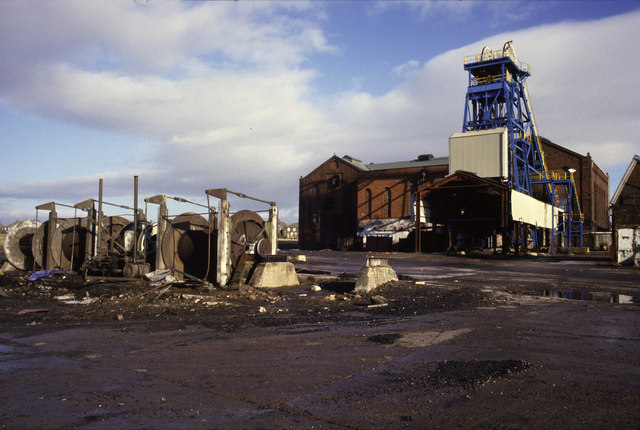A new coal mine proposed along the Cumbrian coast is “unnecessary” and would hinder efforts to tackle climate change, according to a new report.
Woodhouse Colliery received planning permission to go ahead from Cumbria County Council in March 2019, despite opposition from local activists. West Cumbria Mining, the company behind the mine, has said that the project will create around 500 jobs. The government has said that it will not intervene in the decision.
But a report from nonpartisan thinktank Green Alliance argues that the coal mine would damage the UK’s ability to meet its climate change targets. The government has pledged to phase out unabated coal-fired power generation by 2025, but this pledge will not apply to the proposed mine, which will mainly produce coking coal for steel production. Nonetheless, the UK still has a legally-binding target to reach net-zero emissions by 2050.
Like what you’re reading? Support DeSmog by becoming a patron today!
“The proposed mine is clearly incompatible with the UK’s climate ambitions and the need for a clean energy future,” said Rebecca Willis, co-author of the report, in a statement. “The new government has championed its commitment to climate action. It now needs to set out its policy on fossil fuel extraction, making clear that digging more coal out of the ground is no longer acceptable.”
West Cumbria Mining has not yet responded to the report.
Carbon neutral
Cumbria County Council approved the coal mine on the grounds that they considered it “carbon neutral”. Councillors reasoned that the emissions from newly-mined coal would be offset by a likely reduction in coal combustion elsewhere, alongside reduced emissions from importing the fuel from abroad.
But this reasoning is flawed, according to the report. The authors argue that increased coal supply would reduce the price of coal, leading to increased demand and higher emissions. When it comes to steelmaking, it would reduce the incentive to use coal more efficiently or to produce steel using more environmentally-friendly processes, such as electric arc furnaces.
In any case, it is not enough to balance one set of emissions against another, when absolute emissions reductions are required to tackle climate change, the report says. That includes attempting to meet the target of limiting warming to 1.5C that is included in the Paris Agreement, and which the UK has adopted,.
Read more –
Whitehaven: The West Cumbrian Ex-Mining Community Where Coal is Making a Comeback
The coal extracted from the mine, far from reducing emissions, would emit around 420 million tonnes of carbon dioxide equivalent over a 50 year period – similar to the annual emissions of the UK – the report calculates. It says the annual emissions from using the coal extracted from the mine would be more than double Cumbria’s annual net emissions.
“We all know that coal is highly undesirable from the point of view of climate change,” says Ruth Balogh, an activist at the West Cumbrian branch of Friends of the Earth. “It’s something that all UK climate activists are very concerned about, not just local ones.”
Balogh stresses that the battle to oppose the coal mine is not over yet – activists have raised more than £10,000 to challenge the decision by bringing a judicial review.
Unnecessary
The possibility of new job opportunities was a significant reason the Council approved the mine. But the mine is unnecessary from an employment perspective, according to the report.
While the Cumbrian coast has suffered due to the loss of industry, including the closure of the coal pits, the future of the region lies in the shift to a low-carbon economy, the authors argue. A 2018 report by the think-tank IPPR North estimated that up to 46,000 jobs could be created in the north of England in the power sector alone.
Nor would local people necessarily feel the whole benefit of the profits generated by the mine, according to Mike Berners-Lee, a co-author of the Green Alliance report.
“Cumbria’s politicians understandably want to see new jobs on the West Coast. But we estimate that the profits from the mine would leave the local area with only three percent of the turnover spent on salaries,” he said. “We urgently need an active, low carbon industrial strategy for Cumbria and other local areas, to generate thousands of green jobs rather than hundreds of coal jobs.”
Image: Haig colliery. Credit: Crhis Allen/geograph.ac.uk CC BY–SA 2.0
Subscribe to our newsletter
Stay up to date with DeSmog news and alerts






